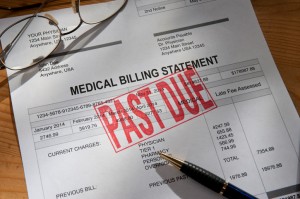What is Medical Bankruptcy?
It should come as no surprise that massive medical bills are one of the primary reasons that people declare bankruptcy in the United States. However, it’s important to understand that not all types of debt are created equally. Some debt can easily be discharged when you file, while with others it isn’t so simple. If you’re considering filing bankruptcy for medical reasons, there are a few key things you’ll need to be aware of.
Chapter 7 Bankruptcy and Medical Debt
When people file for bankruptcy in an effort to discharge medical debt, they most commonly file for Chapter 7 bankruptcy protection. Under this situation, medical bills would be classified as “non-priority general unsecured debts.” This means that they are given no special consideration by debtors and are often the last to get paid during the Chapter 7 bankruptcy process.
In fact, because of their non-priority status, these debts are often not repaid at all by the time the bankruptcy process has completed. In addition to medical debts, things like credit card debts and even unsecured personal loans would all fall under this banner.
In terms of medical debt, there is no limitation on the amount that you can discharge through Chapter 7 – provided that you qualify for it in the first place. Even if some portion of your medical debts are paid during the bankruptcy process, it is very likely that the rest will be eliminated entirely without further action on your part the moment you receive your discharge. This is a large part of why so many people who file for bankruptcy for medical reasons end up filing for Chapter 7.
Medical bankruptcy is an understandably stressful experience, but with the right help and guidance you can guarantee you come out all the better for it. To find out more information about the finer details of medical bankruptcy, or if you’d like to discuss your own personal situation with someone in more detail, please don’t hesitate to call the experts at Clark & Washington today.



